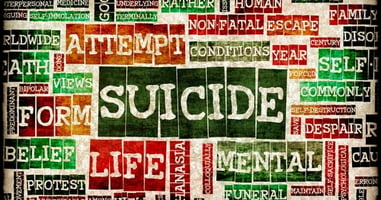Mortality rates for suicide rose substantially over the past decade, and suicide has passed...
New Agenda Aims to Guide Future Direction of Suicide Research
 |
“To reduce suicide, we need to know how to target our efforts: to be able to reliably identify who is at risk, how to reach them, and how to deter them from acting on suicidal thoughts,” wrote Insel, in a blog post today. The agenda poses the following six key questions that its authors hope will guide research over the next five to 10 years, with the goal of reducing suicides by 20%:
- Why do people become suicidal?
- How can we better or more optimally detect/predict risk?
- What interventions prevent individuals from engaging in suicidal behavior?
- What services are most effective for treating the suicidal person and preventing suicidal behavior?
- What other types of interventions (outside of health care settings) reduce suicide risk?
- What new and existing research infrastructure is needed to reduce suicidal behavior?
To read more about other recent initiatives to prevent suicides, see the Psychiatric News article, "Kennedy Makes Suicide Concerns Focus of National Media Tour." Also see The American Psychiatric Publishing Textbook of Suicide Assessment and Management, Second Edition.
(Image: WaveBreakMedia/Shutterstock.com)





